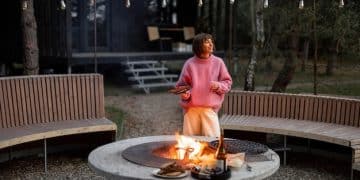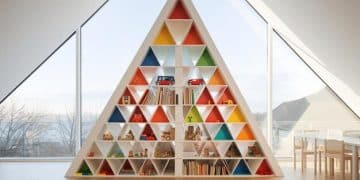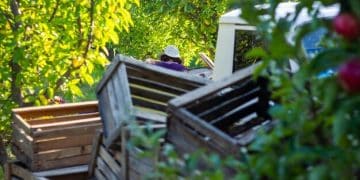Build a Playhouse: Eco-Friendly DIY Project for Kids
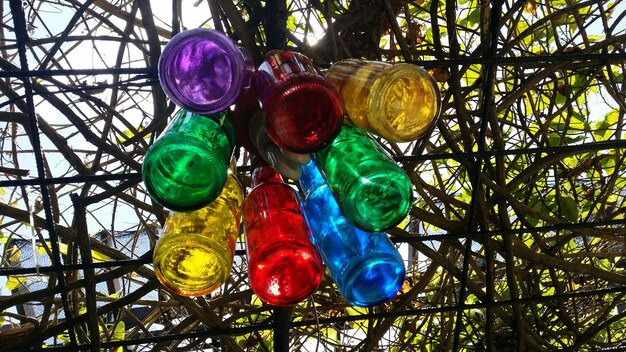
Build a playhouse using recycled materials is a fantastic DIY project, promoting sustainability, creativity, and providing kids personalized, eco-friendly play space.
Looking for a fun and eco-friendly project to tackle with your kids? Build a playhouse using recycled materials! It’s a rewarding experience that inspires creativity and provides a fantastic play space.
Planning Your Playhouse Project
Before diving into construction, careful planning is crucial. This involves determining the playhouse’s design, gathering necessary materials, and ensuring a safe building process.
With a well-thought-out plan, you’ll create a playhouse that’s both fun and safe for your children.
Choosing the Right Location
Select a spot in your yard that’s relatively flat and accessible. Consider shade during hot summer months and proximity to your house for easy supervision.
Design Considerations
Simple A-frame or rectangular designs are easiest to build with recycled materials. Factor in the size of your materials when planning dimensions.
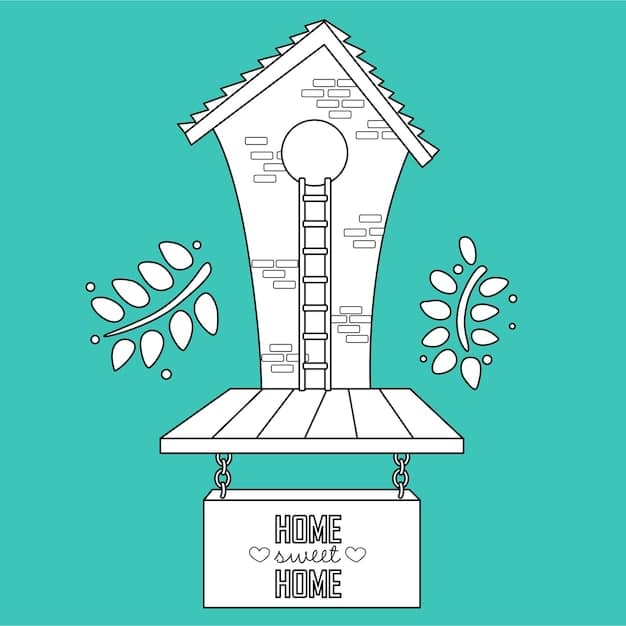
- Measure your materials to determine the playhouse’s size.
- Sketch out the design, indicating where each material will be used.
- Plan for ventilation and light to create a comfortable interior.
A solid plan will ensure a smoother and more enjoyable building experience, leading to a playhouse that meets both your children’s needs and your expectations.
Gathering Recycled Materials
The charm of building a playhouse with recycled materials lies in its eco-friendliness and resourcefulness. Sourcing the right materials not only reduces waste but also adds a unique character to your project.
From wood pallets to plastic bottles, the possibilities are endless.
Sourcing Strategies
Explore local businesses for discarded pallets, ask friends and neighbors for spare lumber, and check recycling centers for reusable plastic containers.
Material Preparation
Clean and sand wood pallets to remove splinters. Wash plastic containers thoroughly, and sort materials by type and size for efficient organization.
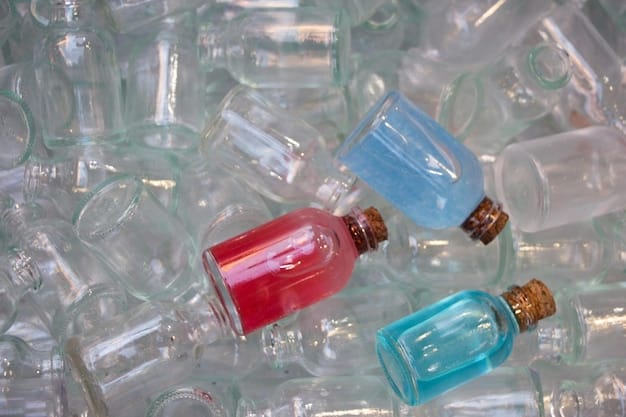
Careful preparation ensures that your recycled materials are safe and ready for construction. It also promotes a more organized and efficient building process.
Constructing the Playhouse Frame
The frame is the backbone of your playhouse, providing structural integrity and defining its shape. Using recycled wood pallets is a sustainable and cost-effective way to create a sturdy frame.
Proper construction ensures the playhouse is safe and durable, ready to withstand hours of fun and imaginative play.
Pallet Assembly
Arrange the pallets to form the walls, ensuring they’re level and securely fastened together using screws and brackets. Reinforce corners for added stability.
Creating Openings
Cut out openings for the door and windows, ensuring they’re appropriately sized for children. Use shims to level the frame before attaching recycled door and window frames.
Adding Walls and a Roof
With the frame in place, it’s time to add walls and a roof, transforming the structure into a recognizable playhouse. Recycled materials offer creative and sustainable options for this stage.
This phase brings the playhouse to life, adding character and protection from the elements.
Recycled Siding Options
Use flattened cardboard boxes, cut and layered like shingles, for a lightweight and insulating wall covering. Alternatively, create a mosaic with plastic bottles for a colorful and durable finish.
- Attach siding materials using construction adhesive and screws.
- Overlap layers to prevent water infiltration and enhance insulation.
- Consider painting or staining the siding for added weather protection.
Roofing with Recycled Materials
Repurpose old metal roofing sheets for a durable and waterproof roof. Alternatively, create a green roof by layering plastic sheeting and adding soil and vegetation.
A well-constructed roof offers protection from the elements and completes the transformation of the structure into a playhouse.
Enhancing the Playhouse with Details
The final touches and details are what make the playhouse truly special. This stage is all about adding personal touches, functionality, and ensuring a safe and inviting space for your children.
Small details can make a big difference in the overall appeal and usability of the playhouse.
Adding Windows and Doors
Install recycled windows and doors, ensuring they open and close smoothly. Add curtains made from scrap fabric for privacy and style.
Interior Decorating
Paint the interior with non-toxic paint and add recycled furniture, such as repurposed chairs and tables. Encourage your children to participate in decorating for a personalized touch.
- Hang string lights for a cozy ambiance.
- Add shelves for storing toys and books.
- Create a chalkboard wall for endless creativity.
Thoughtful enhancements transform the playhouse into a comfortable and inspiring space where children can play, imagine, and create lasting memories.
Ensuring Safety and Maintenance
Safety is paramount when building a playhouse for children. Regular maintenance ensures that the structure remains safe and enjoyable for years to come.
Prioritizing safety and maintenance protects your children and prolongs the life of the playhouse.
Safety Inspections
Conduct regular inspections to identify potential hazards, such as loose screws, splinters, or sharp edges. Promptly address any issues to prevent accidents.
Weather Protection
Apply weather-resistant coatings to protect the playhouse from rain, wind, and sun. Inspect the roof and walls for leaks, and repair as needed to prevent water damage.
Maintenance Tips
Tighten loose fasteners, sand rough edges, and repaint as necessary to keep the playhouse in good condition. Encourage children to take care of their play space by keeping it clean and organized.
| Key Point | Brief Description |
|---|---|
| 🌱Recycled Materials | Use pallets, plastic bottles & cardboard for eco-friendly build. |
| 🔨 Frame Construction | Assemble a sturdy base from pallets, ensuring stability. |
| 🎨 Creative Details | Add doors, windows, & paint for a personalized touch. |
| 🛠️Safety Check | Regularly inspect for hazards to keep kids safe. |
FAQ
▼
Great options include wood pallets, plastic bottles, cardboard boxes, and old tires. Each material offers unique structural and aesthetic possibilities. Ensure that the material is properly cleaned and prepared before use.
▼
Regularly inspect the structure for sharp edges, loose parts, and splinters. Use non-toxic paint and finishes. Also, ensure proper ventilation to prevent any build-up of fumes or odors inside the playhouse.
▼
Essential tools include a saw, hammer, drill, screwdriver, measuring tape, safety glasses, and gloves. Depending on the materials, you might also need a utility knife or a sander for wood pallets.
▼
The time can vary from a weekend to a few weeks, depending on the complexity of the design and the availability of materials. Planning beforehand will greatly speed up the building process. Enlisting help is also a great option.
▼
When using materials like wood applying a sealant is critical. Apply weather-resistant coatings, seal gaps, and ensure proper drainage around the base. For roofs, using waterproof materials like old metal sheets is advisable.
Conclusion
Building a playhouse with recycled materials is a rewarding DIY project that combines creativity, sustainability, and quality time with your children. From planning and material gathering to construction and finishing touches, each step offers an opportunity to learn and create something special together. By prioritizing safety and regular maintenance, you can ensure that the playhouse remains a cherished and safe space for imaginative play for years to come.

